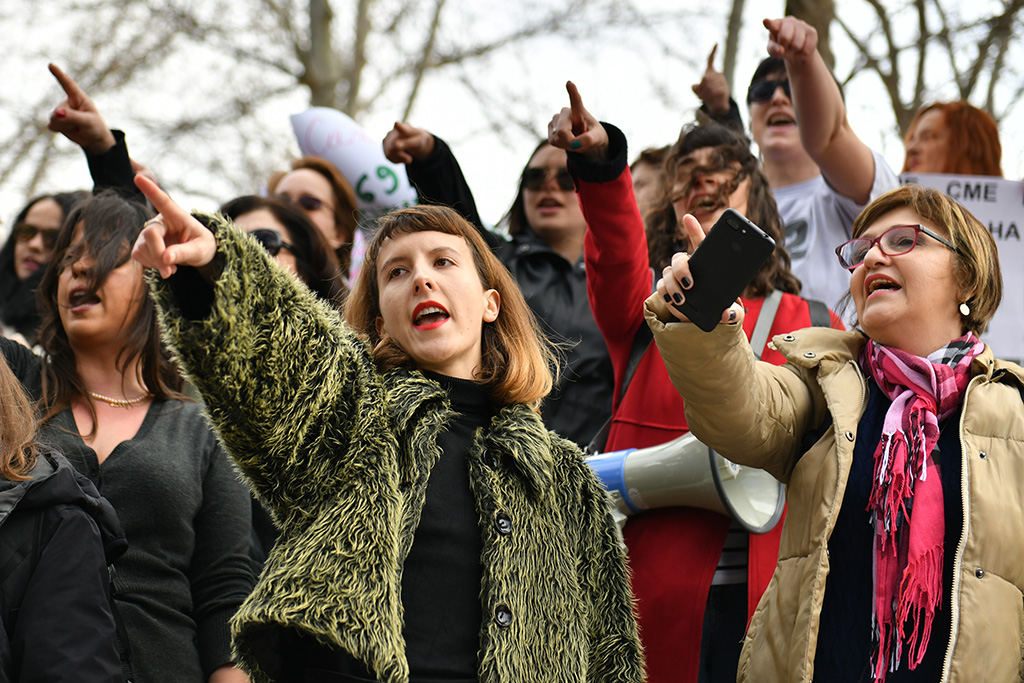How does covid-19 affect our work?
The coronovirus pandemic impacts Kvinna till Kvinna's global work for women's rights. “We operate in more than 20 countries and are now working to adapt our support to local partner organisations. Our partners already carry out their work in areas affected by conflict and the virus makes their efforts even more difficult,” says Secretary-General Petra Tötterman Andorff.

Kvinna till Kvinna’s work is dependent on meetings, networking and learning between women in conflict-affected regions – both within countries and across borders. As borders are closing and curfews are introduced, defending women’s rights becomes increasingly difficult.
Are women affected differently than men by the crisis?
”Yes, women are generally hit harder by crises than men. Gender-based violence increases in societies under stress. Women also make up the majority of health care professionals around the world, who are pressured during an epidemic. At the same time, women are expected to take care of both elderly in need and children who are home from school. Women are also in general poorer than men and are therefore more severely affected by recession,” says Kvinna till Kvinna’s secretary-general, Petra Tötterman Andorff.
How does the coronavirus pandemic affect Kvinna till Kvinna’s programmes?
”In almost all our offices around the world, including the head office in Stockholm, our staff works from home. Either as a precaution or because of lockdown. In many countries, schools have also been closed, which affects our staff’s abilities to work full-time and thus their ability to have close contact with our partner organisations.”
Kvinna till Kvinna has over a hundred partner organisations in four conflict-affected regions. Can you say something general about how they are affected by covid-19?
”Our partner organisations are concerned that their work will be significantly affected, for a long time, and they also worry about the impact the pandemic will have on their communities. It’s still too early to have a comprehensive overview of how our partners are facing these new challenges. The situation varies from country to country. Many countries have imposed restrictions on the number of people allowed to get together and this affects both our partners and our local staff, not least in terms of opportunities to facilitate trainings. Restrictions on how residents can move outdoors also have direct consequences for our partners as many run support centers and conduct outreach activities.”
Can you give a concrete example of how a partner organisation is affected?
”In Serbia, for instance, there’s a curfew at certain times of the day. Our partner organisations therefore can’t reach their premises and answer the support hotlines for domestic violence as usual. Instead, they are now receiving calls on their mobiles, which means they are taking calls around the clock. While this is straining, it also means that they can provide immediate response and support. For example, by quickly referring abused women to the police. In Serbia, as well as in several other countries where we operate, our partners are also working on new, creative solutions for information outreach, for example through social media.”
How can digital solutions aid the work for women’s rights?
”Many of our partner organisations work closely with the women they help, as in shelters, where digital solutions aren’t a great help. But in other areas, such as facilitating meetings, digital solutions are vital and we are working to develop more digital tools for both our own staff and our partner organisations. Unfortunately, not all places where we work have stable internet connections. In some countries, digital solutions aren’t safe, where it’s too dangerous to share information digitally.”
Does Kvinna till Kvinna have any previous experience similar to the coronavirus outbreak?
”Yes, most recently in Liberia during the Ebola epidemic 2014–2015, when we were one of the few international organisations to remain on site in the country. The Ebola epidemic hit women hard because many of them cared for the sick at home. As an organisation, we played an important role in disseminating information and conducting information campaigns targeted at women.”
How is the work for women’s rights at risk of being affected longterm?
”One concern is that some states and politicians are taking the opportunity to violate and restrict human rights. We must never accept that. We will continue to scrutinise and hold those in power accountable. During the upcoming quarter, Kvinna till Kvinna was supposed to participate in several international conferences on women’s rights, many of which now have been suspended or postponed. This is problematic, but we will continue our work for gender equality and democracy as best we can. It’s still difficult to estimate what financial impact this will have on us as an organisation. We hope that the support for women’s rights will continue throughout this crisis. Now, more than ever, we need solidarity across borders,” says Petra Tötterman Andorff.